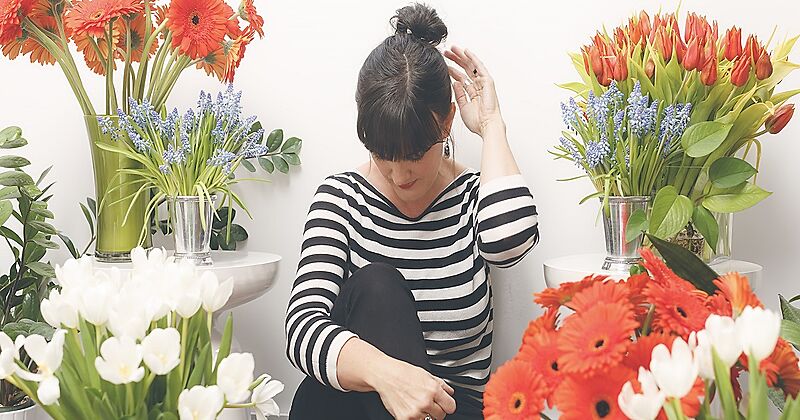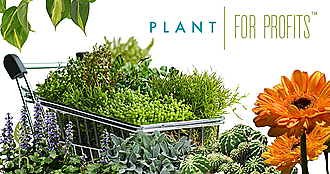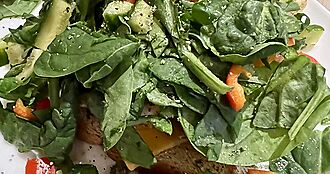Help Me, Help You: How to Request Quotes from a Plant Expert

Help Me Help You
I get a lot of requests for expert quotes for articles, blogs, you name it. And after 32 years as a professional horticulturist and professional writer, I’m seeing some trends in requests from journalists that I think it’s time to address out loud. If you’re a writer for a blog, magazine, or other publication, I’m going to give you some very helpful tips on how to request information from experts to best support your content in a much more meaningful way, and what not to ask for.
There seems to be a blurring of the lines these days between soliciting quotes from experts…and essentially asking the expert to write the most or all the article for you. Over the last few years, I’ve been bombarded with the latter. I suspect this is a result of both the devaluing of written content and the profession of journalism and a lack of proper training.
Too Eager to Help?
Unfortunately, those of us who work in the horticulture and gardening industry are expected to share everything we know for free, on demand. 24/7. And there is a knee-jerk response from many in the business to over-offer everything we know because we tend to be helpful sorts of folk. But here’s the deal; it’s not our job to write the entirety of the body copy of an article (or several) for a journalist or blog writer who asks us for quotes.
As the writer you are supposed to write the article by doing your own reading and review of public information and/or pulling from your own observations and experience. Expert quotes are meant to support and supplement that writing and provide credibility…but shouldn’t be substituting for the bulk of the copy, unless you plan to add my name to the byline.
But it happens all the time, because reporters rarely really ask for quotes from specific questions. Rather, what you are often really asking me to provide is a lot of information for say a long lists of plants or gardening methods – you want me to provide all the foundational information…the information you would be able to find if you first did the legwork. Basically, what I’m getting sent is the entire outline of the article and I’m being asked to fill it in. Writing copy for all that translates into hours spent…and usually on an unrealistic turnaround time, because 99% of these requests come in at the last minute.
There is both a lack of respect for the professional's time and understanding of what to ask for and how to ask for it. And this is coming from writers from many BIG popular publications.
Hard Truths
What I’d like to do is offer journalists some helpful guidance on how better to approach this, coming from a place of authentic concern. Changing your approach will get you better responses and allow you to better differentiate your writing in deeper way. I also want to advise publishers and quote harvesting platforms this is a growing issue, and it would be helpful to better clarify this distinction to your writers, provide clear standards, and vet your writers, especially contractors.
If you’re a writer, and you ask me for quotes for an article, and I gift you my email address (if you found me on another platform) and ask you to send me the questions and turn around time, DO NOT send something like this:
“I need the basic care information on all these plants (then there is a list of 10 houseplants or garden plants) and techniques, also how and when to fertilize them and what kind of fertilizer is best, also if you can write a few sentences describing each, and then also tell me how each can help with abc in the home…and if I could get those answers by tomorrow or the next day at the latest…”
This type of request is NOT a request for quotes or answers to a question. Nor is it a respectful amount of lead time for such a request. This type of request tells me you have an article you haven’t started that is due tomorrow, or the next day and you basically need me to fill in ALL the information for the article for you so you, and you’ll throw quotes around a few of my sentences. Look, that’s not my job…again, unless you plan to add my name to the byline and share your fee.
Understand, this is not an attack on any specific writer who has contacted me. This approach and request are SO common that it’s really across the board at this point.
I mean I get it…writers are likely getting paid very little for such print and online posts (I know this as a writer myself)…so I understand the inclination to pawn off the bulk of the work to the “expert”. But here is my perspective: If, for a fee, you as a writer are unwilling to proactively do the bulk of the writing before you contact me, why should I as a busy professional be willing to give you all that info for free. I mean, this is also my profession. I know this is rarely anyone's intent, but frankly, it makes you look lazy. And I hate even saying that.
I know this all sounds harsh, but it’s the truth.
But it's Good Exposure for You!
Another thing: please, do not tell me it’s “good for my exposure” (this goes for speaking for free or a nominal fee as well) If you contacted me because I’m a well-known expert, then it should be obvious I may not be in great need of more exposure! Look, I do authentically appreciate the inclusion, for sure, and I want to proactively support gardening publications and better consumer education. So, I’m here for that and I am willing to help – but please don’t give me the “you should be honored to be asked or promoted” line. Because let me tell you no one you’re asking for quotes from is going to feel the way you think they will when you say something like that to them; and you’re certainly not earning their respect.
The reason I’m helping a journalist or writer is because I’m an educator at heart, I want to help people be successful, and I want to counter all the BAD horticultural information that gets propagated and perpetuated online. And at my core I’m a very generous person. That said, what I know as an expert is in demand and there is value in it that should be respected.
What to ask for...and HOW to Ask
So, what should you ask for and how do you ask for it? Do some work on your piece first…this will help you figure out where your gaps are that really need to be bolstered by someone like me. It will help you figure out some questions YOU have that someone like me can answer. Those are the quotes you need from someone like me, or any expert. Don’t send me the outline of your article and lists of plants and ask me to tell you something about all of them.
- Instead, send me 3-5 specific/narrow questions you have about specific plants featured, or a specific technique, or something that is confusing you as you are writing your article. The answers I give you are all quotes…if you then pull some of my answers to write body copy, you still must attribute me for whatever it is I said that you used out of quotes.
- Give me a week’s lead time, at least. I do understand some assignments come in at the last minute, and sometimes I can help at the last minute. Sometimes I can't.
- Now, if you happen to be doing a feature on me, my business, my books, or courses...then by all means, there is much more responsibility on me to provide you with much more information and spend more time with you.
Remember, I’m already busy, and I’m already getting requests from many other writers. My time to help for free on these types of requests is limited. When you send me a request that’s an outline of your article or you want way too much information, you are going to get an email response from me outlining the above and what I can offer you instead.
The Problem with Phone Interviews
That's right, I rarely, if ever, do phone interviews anymore. Why? Well, I've just been misquoted too many times for my comfort. When you're dealing with a science-based conversation, facts and accuracy matter. And sometimes conversations meander and information can simply be mixed up. So I take my interview questions in writing via email - but if you need a "proof of life" from me for you editor then I'm happy to jump on the phone - but direct quotes will need to come from me in writing.
Cool? Cool.
Its like I tell my students at the beginning of any course: “Help me be a better teacher by being a better student.” Help me help you, and then we all look like we have our *hit together.
Don't Take NO Personally
Sometimes you’re going to get a “No” from me. The worst thing you can do is take a “No”, or my asking you for more specific questions, as a personal offense… and then ghost me. Because if you ghost me over that, you’ve now lost what would likely become a very valuable professional connection for many years. You gotta toughen up.
More importantly, we need to normalize WOMEN saying “No”. So, if you are a woman writer this is especially important for you to internalize. Boundaries are a good thing for all of us. If you say yes to everything, you’ll relinquish most or all of your value. Remember, busy professionals are busy…you may need to follow up with us on a reminder email. Us forgetting to reply to you is also not to be taken personally. Again, I’m BUSY. I mean, I could have just ignored your unreasonable last minute request in the first place, but I didn’t. I respected you and replied and explained how I could help you. So, just think about that before you get mad that I won’t do what you asked me to, by your deadline.
It doesn’t mean I’m “difficult”, it just means I know my worth and I set healthy boundaries around my time. That’s it.
It's like I tell my students at the beginning of any course: “Help me be a better teacher by being a better student.” Help me help you, and then we all look like we have our *hit together.


